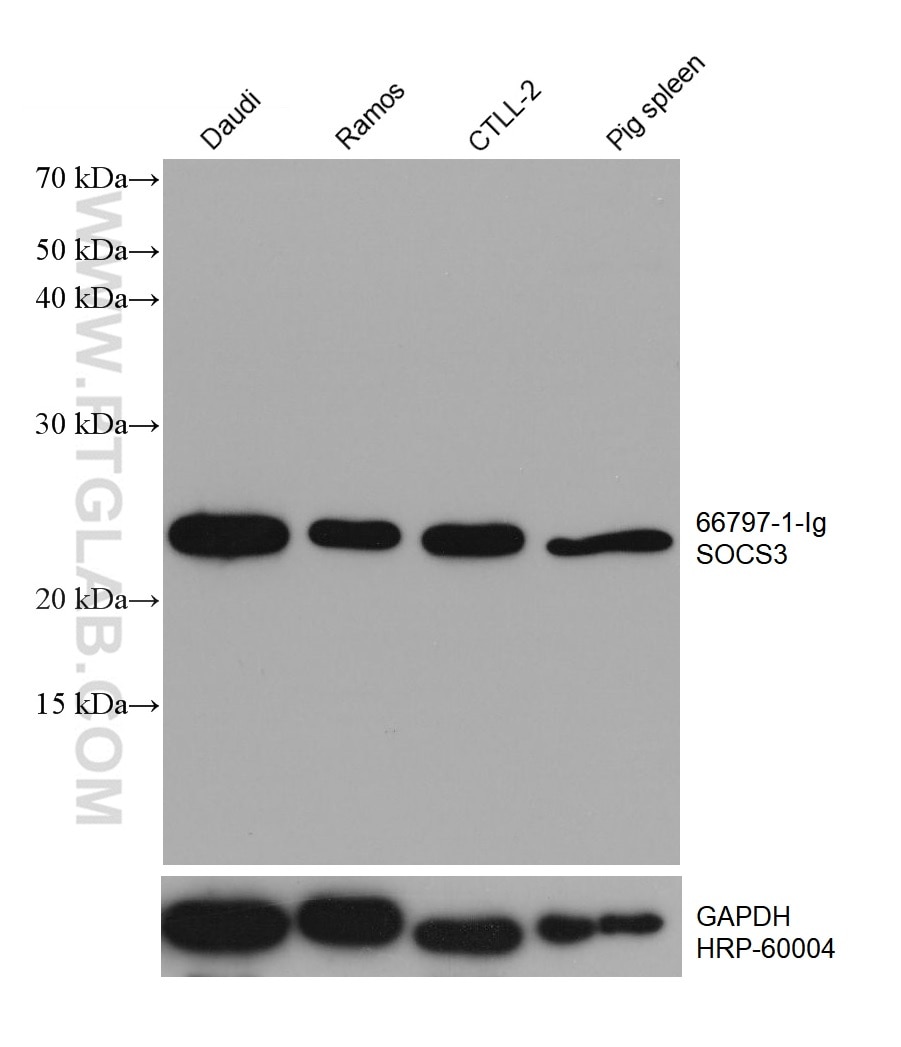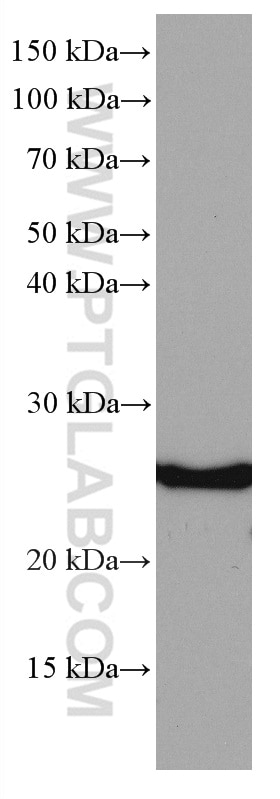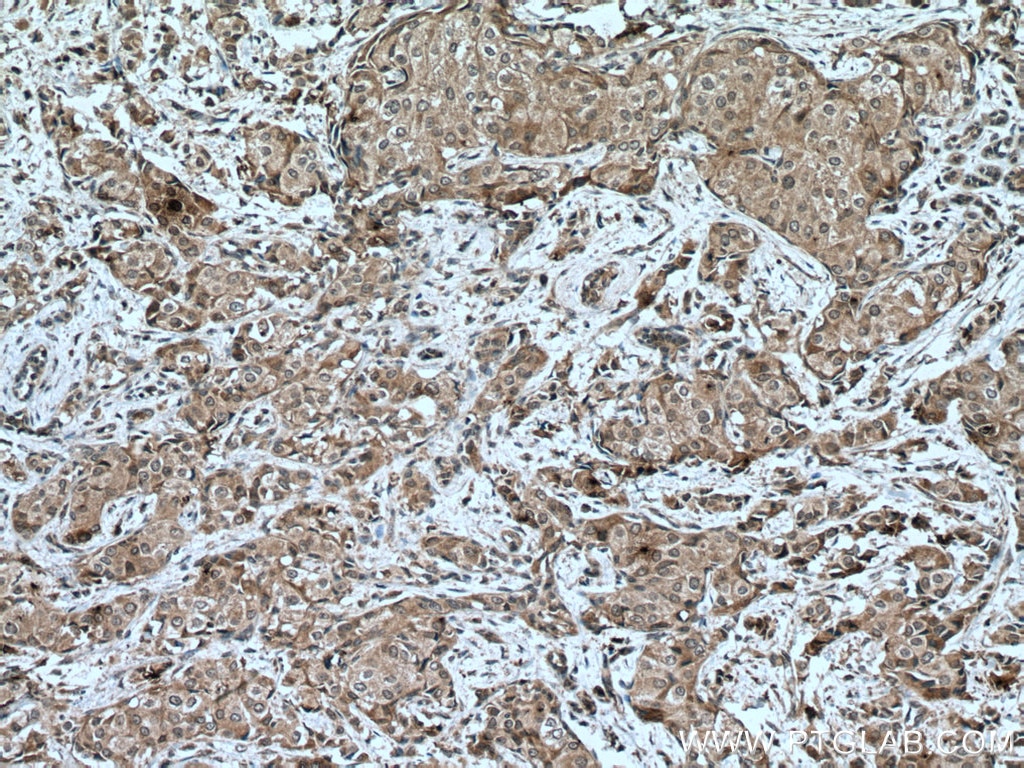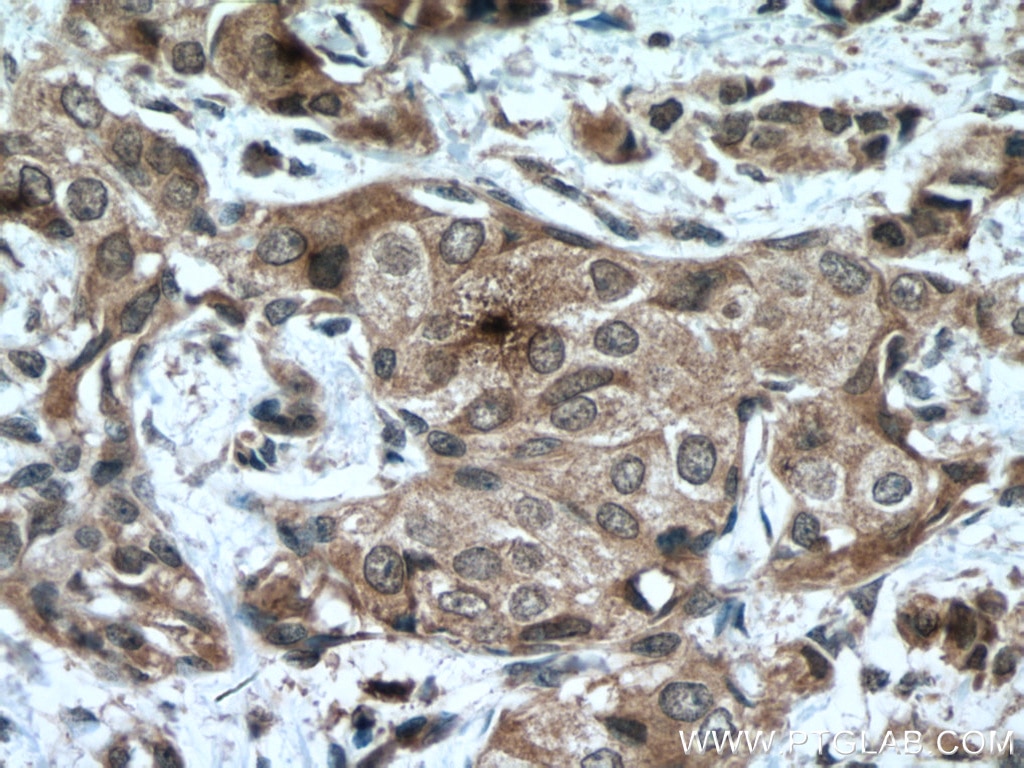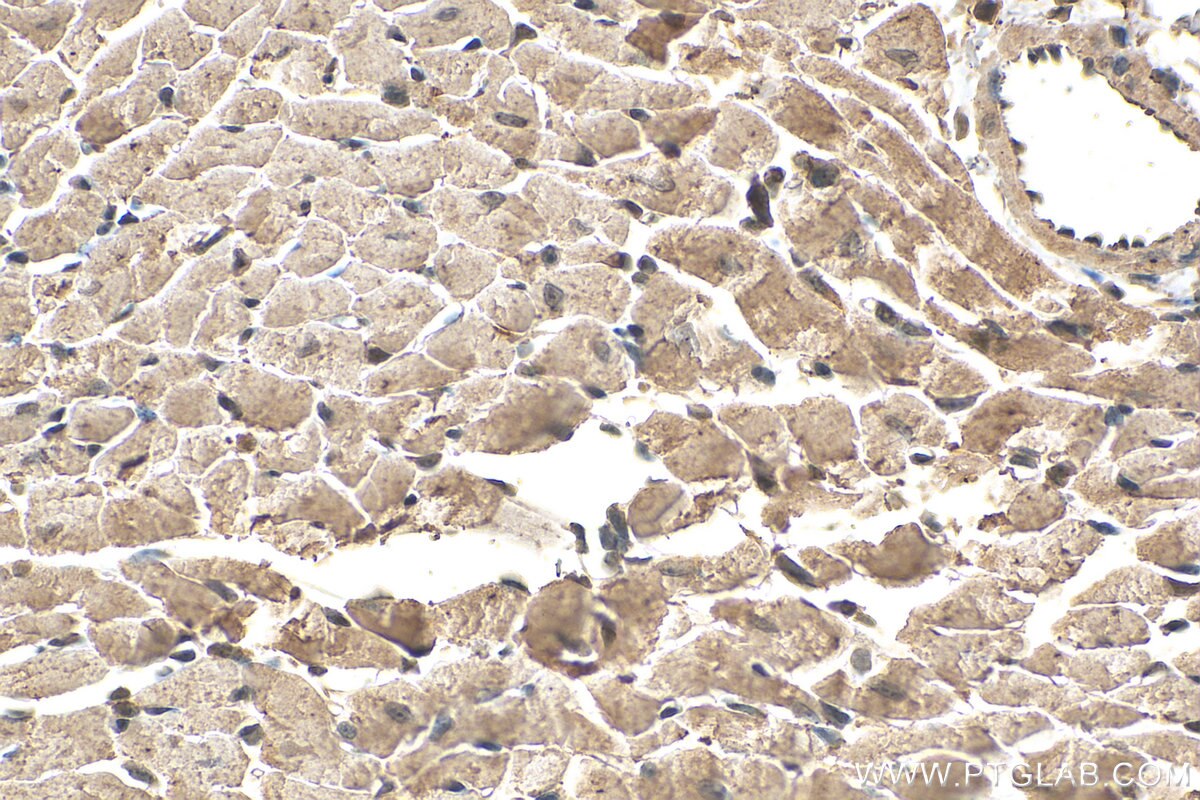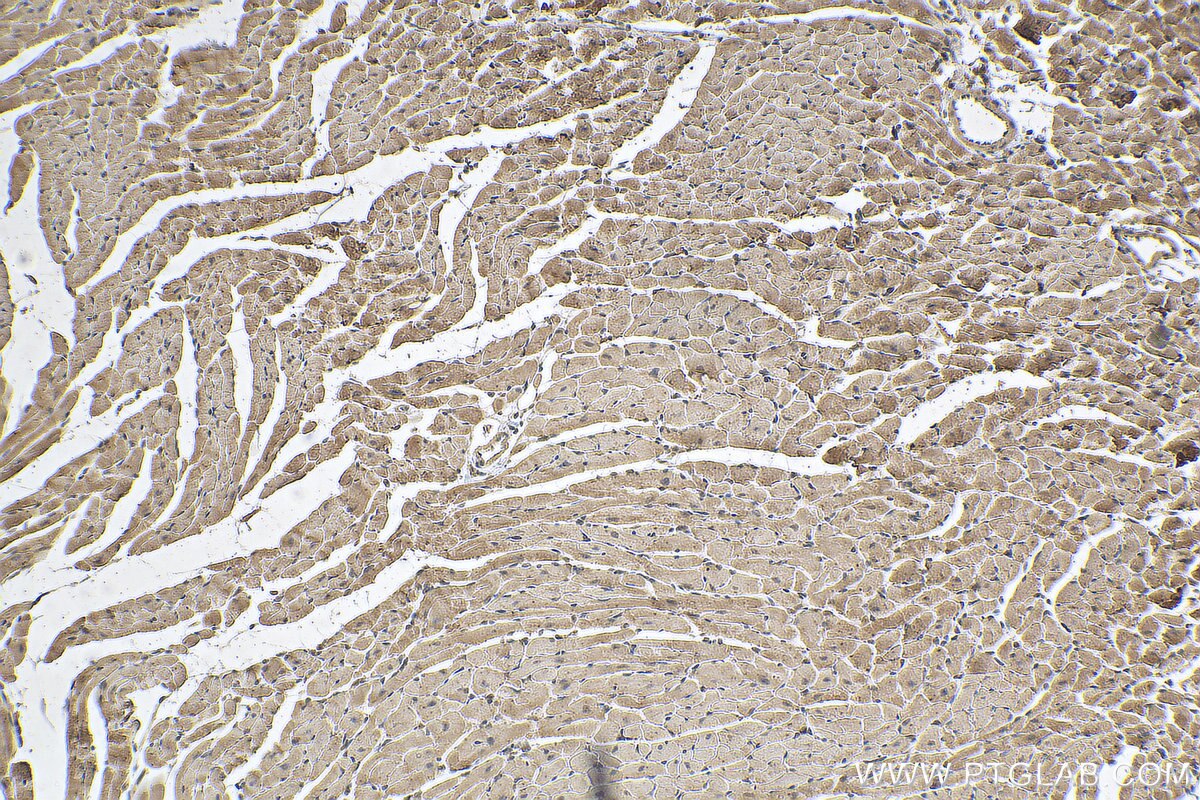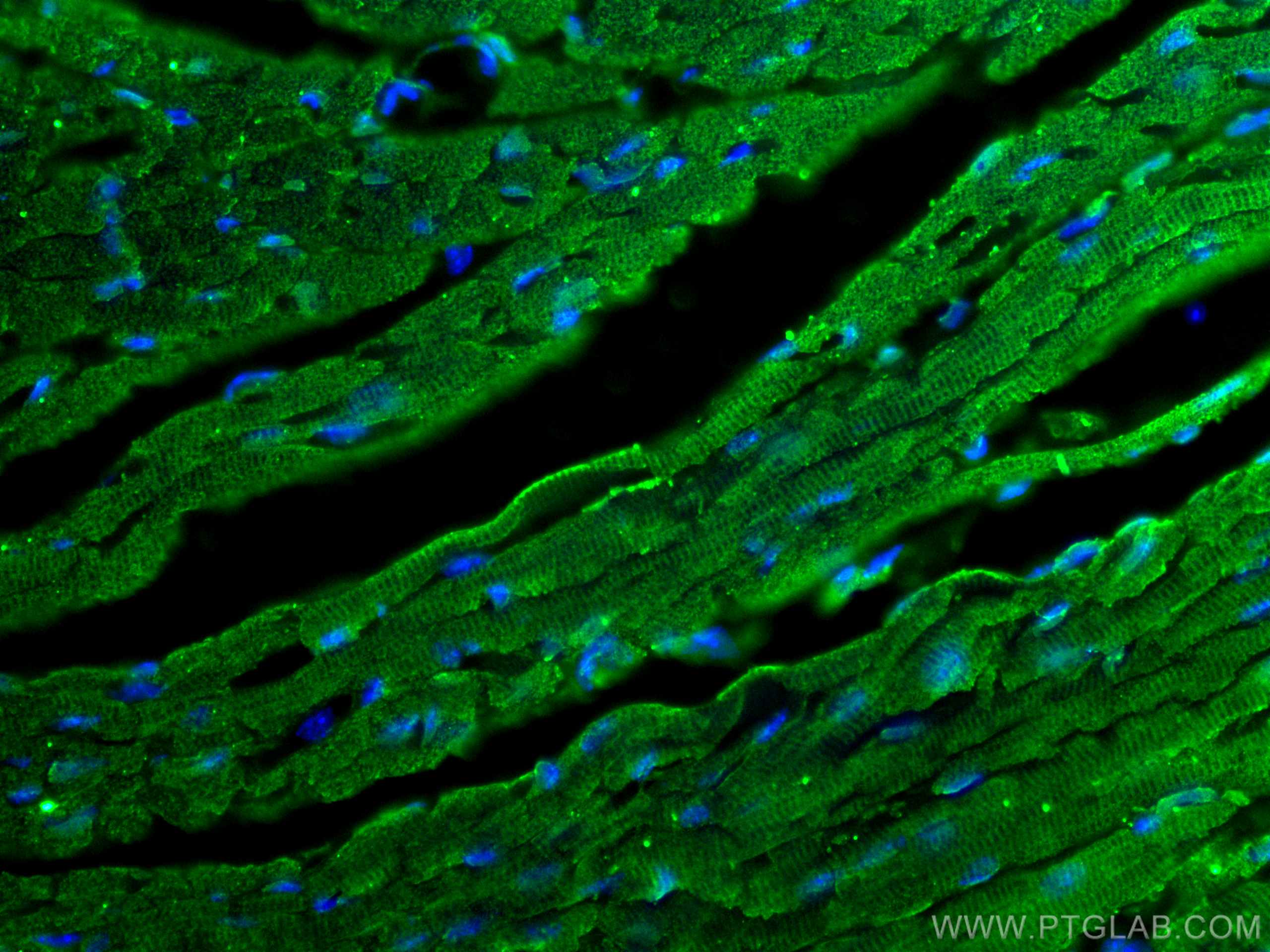SOCS3 Monoklonaler Antikörper
SOCS3 Monoklonal Antikörper für WB, IHC, IF-P, ELISA
Wirt / Isotyp
Maus / IgG1
Getestete Reaktivität
human, Maus und mehr (1)
Anwendung
WB, IHC, IF-P, IP, ELISA
Konjugation
Unkonjugiert
CloneNo.
1G2B12
Kat-Nr. : 66797-1-Ig
Synonyme
Geprüfte Anwendungen
| Erfolgreiche Detektion in WB | Daudi-Zellen, Jurkat-Zellen, Hausschwein-Milzgewebe, Ramos-Zellen |
| Erfolgreiche Detektion in IHC | humanes Mammakarzinomgewebe, Mausherzgewebe Hinweis: Antigendemaskierung mit TE-Puffer pH 9,0 empfohlen. (*) Wahlweise kann die Antigendemaskierung auch mit Citratpuffer pH 6,0 erfolgen. |
| Erfolgreiche Detektion in IF-P | Mausherzgewebe |
Empfohlene Verdünnung
| Anwendung | Verdünnung |
|---|---|
| Western Blot (WB) | WB : 1:5000-1:50000 |
| Immunhistochemie (IHC) | IHC : 1:250-1:1000 |
| Immunfluoreszenz (IF)-P | IF-P : 1:400-1:1600 |
| It is recommended that this reagent should be titrated in each testing system to obtain optimal results. | |
| Sample-dependent, check data in validation data gallery | |
Veröffentlichte Anwendungen
| KD/KO | See 1 publications below |
| WB | See 16 publications below |
| IHC | See 2 publications below |
| IF | See 2 publications below |
| IP | See 1 publications below |
Produktinformation
66797-1-Ig bindet in WB, IHC, IF-P, IP, ELISA SOCS3 und zeigt Reaktivität mit human, Maus
| Getestete Reaktivität | human, Maus |
| In Publikationen genannte Reaktivität | human, Maus, Ratte |
| Wirt / Isotyp | Maus / IgG1 |
| Klonalität | Monoklonal |
| Typ | Antikörper |
| Immunogen | SOCS3 fusion protein Ag5386 |
| Vollständiger Name | suppressor of cytokine signaling 3 |
| Berechnetes Molekulargewicht | 25 kDa |
| Beobachtetes Molekulargewicht | 25 kDa |
| GenBank-Zugangsnummer | BC060858 |
| Gene symbol | SOCS3 |
| Gene ID (NCBI) | 9021 |
| Konjugation | Unkonjugiert |
| Form | Liquid |
| Reinigungsmethode | Protein-G-Reinigung |
| Lagerungspuffer | PBS with 0.02% sodium azide and 50% glycerol |
| Lagerungsbedingungen | Bei -20°C lagern. Nach dem Versand ein Jahr lang stabil Aliquotieren ist bei -20oC Lagerung nicht notwendig. 20ul Größen enthalten 0,1% BSA. |
Hintergrundinformationen
Suppressor of cytokine signaling 3 (SOCS3) is a member of SOCS family that these proteins induced to attenuate cytokine signal transduction in response to signals from a diverse range of cytokines and growth factors. SOCS3 is a negative regulatory protein that inhibits signaling induced by IL-6 via preventing JAK mediated activation of STAT3. However SOCS3 can positively regulate the ERK-MAPK pathway, inhibit the NF-kB pathway (PMID:26429311,25035930). In addition, SOCS3 brings a great impact on immune responses by inhibiting signaling stimulus, such as LPS, type I and type II IFNs, and IL-12. SOCS3 is widely expressed in heart, placenta, skeletal muscle, peripheral blood leukocytes, fetal and adult lung, and fetal liver and kidney (PMID: 22961088). Dysregulation of SOCS3 functions can cause a variety of diseases, including allergy, autoimmune diseases, inflammation and cancer (PMID:26429311).
Protokolle
| PRODUKTSPEZIFISCHE PROTOKOLLE | |
|---|---|
| WB protocol for SOCS3 antibody 66797-1-Ig | Protokoll herunterladen |
| IHC protocol for SOCS3 antibody 66797-1-Ig | Protokoll herunterladenl |
| IF protocol for SOCS3 antibody 66797-1-Ig | Protokoll herunterladen |
| STANDARD-PROTOKOLLE | |
|---|---|
| Klicken Sie hier, um unsere Standardprotokolle anzuzeigen |
Publikationen
| Species | Application | Title |
|---|---|---|
Acta Pharmacol Sin Epac activation ameliorates tubulointerstitial inflammation in diabetic nephropathy.
| ||
Int J Mol Sci Leptin Modulates the Response of Brown Adipose Tissue to Negative Energy Balance: Implication of the GH/IGF-I Axis. | ||
J Ethnopharmacol Simiao San alleviates hyperuricemia and kidney inflammation by inhibiting NLRP3 inflammasome and JAK2/STAT3 signaling in hyperuricemia mice | ||
Mol Nutr Food Res Single Treatment of Vitamin D3 Ameliorates LPS-Induced Acute Lung Injury through Changing Lung Rodentibacter abundance. |
